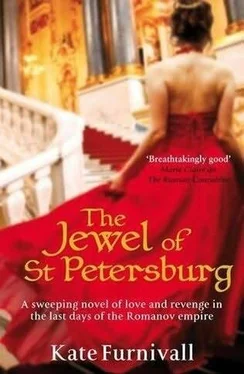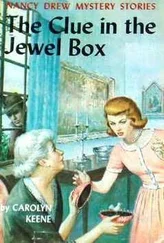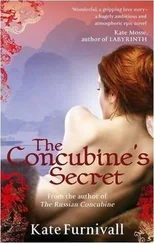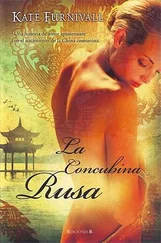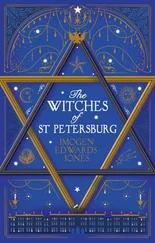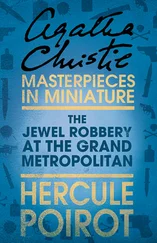So what next?
3. Find employment.
She ran a finger over the word employment and her stomach lurched. For years she’d had a dream. Ever since she was a gawky gap-toothed child she had planned it, while others giggled in corners and played with toys. To be a concert pianist. That was her aim. To tour the greatest concert halls and palaces of Europe, performing before heads of state in Rome and Paris, London and Vienna. But it was gone. Blown apart by the bomb. It couldn’t happen now. It would mean years of dedicated work at the St. Petersburg Conservatoire, and she no longer had that luxury. She had to care for Katya. She stared at her fingers, at their strong tendons and well-rounded pads, and she felt disloyal to them. Disloyal to herself. She had to forget the dream.
But how? How could she tear it out of her head when she could still see herself at the keys, pouring her heart into the music, then rising from the piano, her audience on their feet? She would wear a scarlet Parisian gown, a single strand of pearls in her hair, and she would play the finest concerts in Europe. She could actually see herself. Feel her heart thudding.
“Forget the dream.” She said it aloud.
The paper in her hand shook. Find employment. Yes, she had made her decision about that.
She must talk to Papa. She knew that wives and daughters of distinguished families didn’t go out to work and that Papa would be ashamed if she did so. He would regard it as demeaning to the Ivanov name. But she would explain to him, persuade him to agree.
4. Make Papa forgive me.
One day, Papa. One day.
What saddened her most was that she and her father had always had a quiet understanding, and now that was gone. He had never been an attentive parent and constantly put his work before everything, but he and she had always had a special bond between them. Katya was the one he petted, indulged, and smiled at most, and Valentina understood why: she was the image of her mother when she was young-blond, blue-eyed, and with a gentle smile. Whereas Valentina was like her father: dark-haired, brown-eyed, and possessed of a single-mindedness that matched his own.
Over the years he had made no secret of the fact that he often found his elder daughter maddening, but even when he was reprimanding her for some misdeed, there was a gleam of pride in his eye, a hint of respect in his voice. The way he might feel about the son he never had. But since the bomb he had withdrawn from her, and she felt the loss keenly. He needs someone to blame, her mother had said, but it didn’t seem right that it was her.
One day, Papa, one day, you will forgive me.
5. Obey Mama.
She was still working on that one.
6. Play the piano better every day.
What was the point now?
7. Play for the tsar.
She laughed at herself and drew a line through it.
8. Marry the Viking.
The words were already crossed out with fierce black strokes of ink. A silly girl’s fancy. She shrugged it off, ignoring the heat that rose up her neck.
9. Buy a gun.
She stared at that one and felt her pulse quicken. She’d not yet worked out a way to do it. The revolutionaries had come once. They could come again, the way bad dreams came back when you thought they were gone. But next time she would be ready for them. Number 9. She underlined it in black ink. Buy a gun. She sat with her eyes fastened on the list and thought out each point in detail. Finally she picked up her fountain pen and wrote one more:
10. Find a Bolshevik.
Find the Bolshevik. That was what she really meant. The promises of the police and of her father to make the bombers pay for their crime had proved as meaningless as the lies of the tsar himself. The men in hoods had vanished into thin air. Oh yes, pockets of known Bolsheviks had been rounded up and questioned, but no one knew anything of the ghosts who walked in the forest.
Find a Bolshevik.

D OBROYE UTRO, GOOD MORNING, MINISTER.”
“Dobriy den, good afternoon, Minister.”
“Dobriy vecher, good evening, Minister.”
Those were words that Viktor Arkin liked least. Instead of “Good morning, comrade.”
“Yes, master. Da, barin. ”
“No, master. Nyet, barin. ”
Those were words that grated in his gut.
Every day Arkin drove Minister General Nicholai Ivanov in the Turicum along the Embankment in St. Petersburg to the Ministry of Finance, and each day he listened to the words that were spilled in the back of the car. The minister had a loose tongue. Often he would talk too openly with colleagues as Arkin drove them across the city to meetings. Once Minister Ivanov had even been fool enough to leave his attaché case lying on the seat in the car after too many brandies at the Donon. Arkin had read its contents meticulously and made notes for an hour before he returned it to the minister.
Worst were the evenings. Waiting outside restaurants like a dog in the cold. Outside nightclubs. Outside brothels. Outside the mistress’s apartment on Izmailovsky Prospekt. But some days Madam Ivanova requested the car instead of the carriage, and on those days Arkin smiled.

ARKIN WATCHED ELIZAVETA IVANOVA WALK DOWN THE front steps of the house and considered how women of this class moved differently, held themselves differently. You could wrap them in rags and still you would know who they were, what they were. Beautiful, elegant, fragrant parasites.
She approached across the gravel, picking her way with delicate care over the thin layer of snow that had fallen since the drive was last brushed an hour ago. He stood beside the car in his maroon uniform and peaked cap with its gold band and waited for her instructions.
“Arkin, I want you to drive both my daughters into town today. To Gordino’s restaurant on Morskaya.” Her blue eyes studied him assessingly, and he knew she was wondering whether she could trust him.
Both daughters. That was rare. The crippled one didn’t go out much even though he had removed the front passenger seat of the car to allow for her wheelchair to be stored there. It must be the influence of her dark-haired sister. The one who looked at him with eyes that were not easily fooled by a chauffeur’s uniform and a submissive lowering of his gaze.
Into town today, she’d said. For one fraction of a second he almost let the wrong words slip out. Today is not the day for your daughters to be in town. Keep your daughters at home. But instead he nodded politely and opened the car door.

ARKIN LISTENED TO EVERY WORD. HE ALWAYS DID. THAT was his job.
The Turicum was a magnificent monster of a vehicle. Imported from Geneva, all deep blue leather and fearsome brass fittings that he polished each day within an inch of their life. He sat up front in the driver’s seat, swathed in his maroon coat, and today the air had the bite of a tiger. To keep it at bay the daughters were bundled up with a weighty bearskin rug over their knees and fur hoods over their ears.
It will be cold for the marchers today. No bearskins. No fur hoods. Just the heat of anger in their bellies.
As he drove through the city, the streets of St. Petersburg slid past with their tall pastel buildings and people scurrying about their business, unwilling to linger in the freezing wind. It gave him satisfaction to see the cars and carriages jostling axles, the horse-drawn drozhky lumbering along, heedless of the klaxons that demanded room to pass. The more traffic, the better. The more chaos there would be.
Читать дальше
